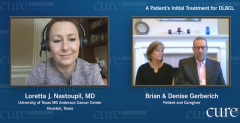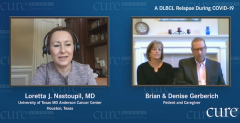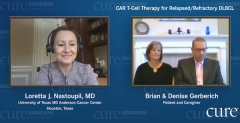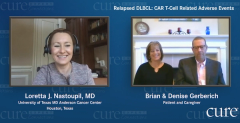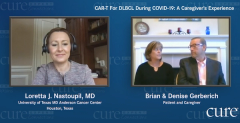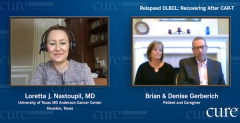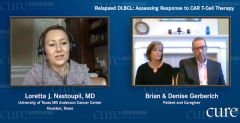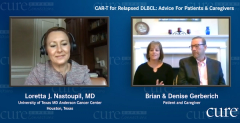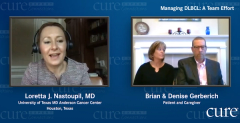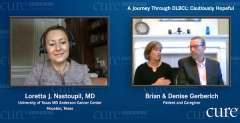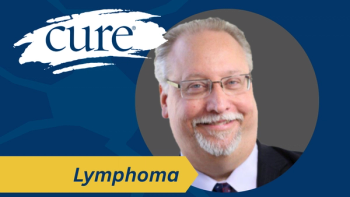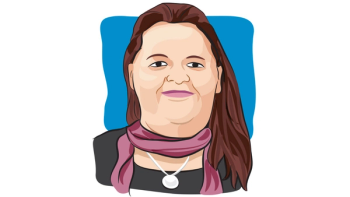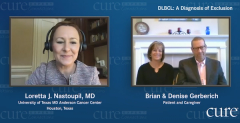
A Journey Through DLBCL: Cautiously Hopeful
Episodes in this series

Loretta J. Nastoupil, MD: One last question for you. This is a one-time treatment and you’re done. I know it’s early in this course, but I am very optimistic that you’re cured and you can now move on and face other challenges with life. But what are your thoughts about that? Is it too soon to consider that, or are you optimistic?
Brian Gerberich: We’re cautiously optimistic, I would say. We’ve been down this path where we get such great news and we’re so excited, we call everybody, and then a few months or a year later, it’s back. We are cautiously optimistic. We know that there are so many things out there that are coming down the pike. If diffuse large B-cell lymphoma does happen to come back, we’re not going to give up hope.
Denise Gerberich: I would say the same thing. We often use the term cautiously hopeful. I think we’re still processing and working through; we want to grab onto that assurance that he is cured, and we are finished with that process. It still is a process to work through, I think, because having had the relapse three times, it is a process. But we’re so grateful.
And we have great hope and encouragement now that this one is going to stick and that this is the answer for us.
Loretta J. Nastoupil, MD: Well, I sure appreciate your time, and I appreciate your trust in us in giving up a minimum of four weeks of your life. I know it was much longer than that in the grand scheme of things. And I appreciate you sharing your story for other patients to potentially learn from your experience.
Brian Gerberich: You’re very welcome.
Denise Gerberich: We are so grateful, and thank you so much for your part in giving him the gift of life, truly. Thank you.
Transcript Edited for Clarity

